Shows
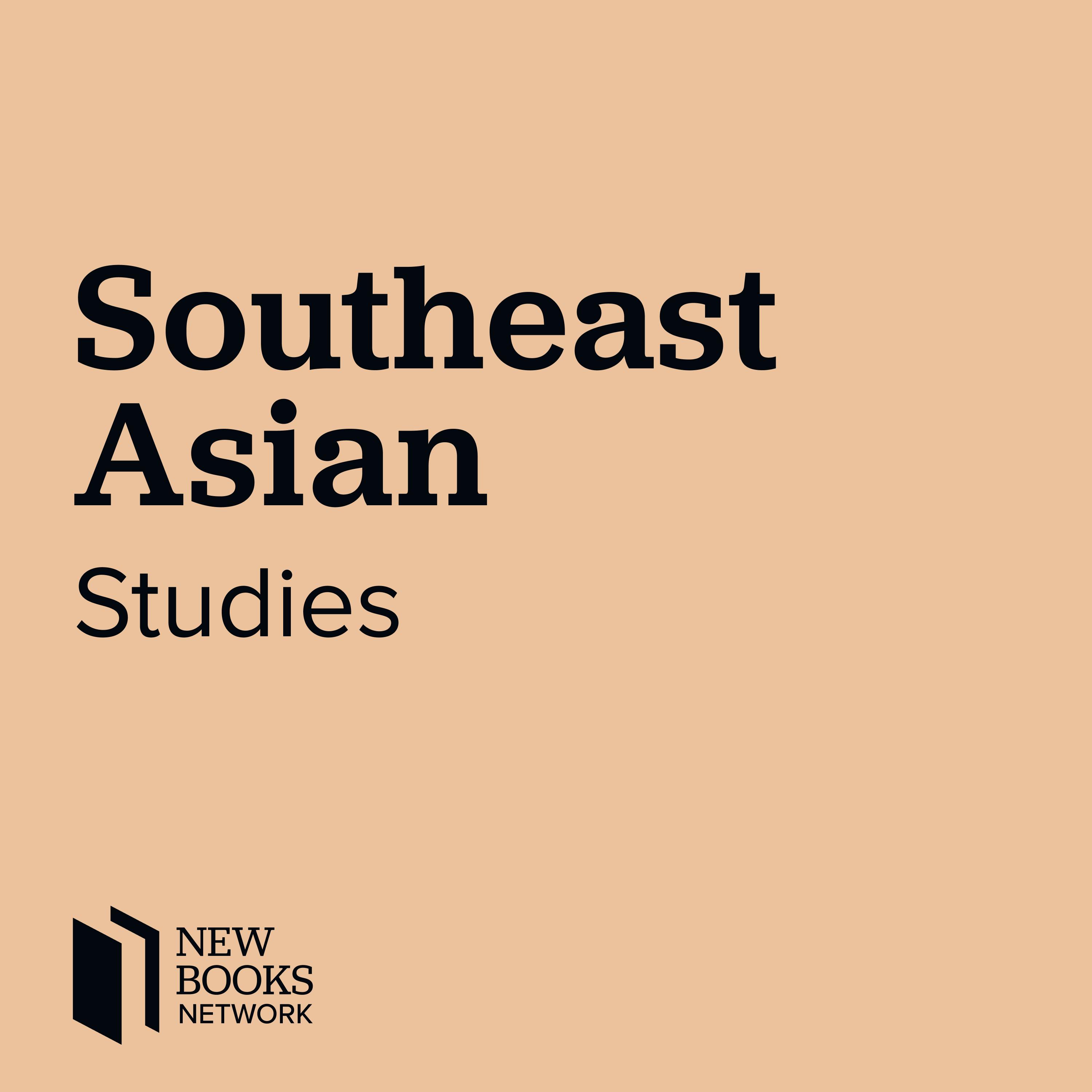
New Books in Southeast Asian StudiesMartin Dusinberre, "Mooring the Global Archive: A Japanese Ship and Its Migrant Histories" (Cambridge UP, 2023)In Mooring the Global Archive: A Japanese Ship and Its Migrant Histories (Cambridge UP, 2023), Martin Dusinberre follows the Yamashiro-maru steamship across Asian and Pacific waters in an innovative history of Japan's engagement with the outside world in the late-nineteenth century. His compelling in-depth analysis reconstructs the lives of some of the thousands of male and female migrants who left Japan for work in Hawai'i, Southeast Asia and Australia. These stories bring together transpacific historiographies of settler colonialism, labour history and resource extraction in new ways. Drawing on an unconventional and deeply material archive, from gravestones to government files, paintings to...
2024-05-191h 06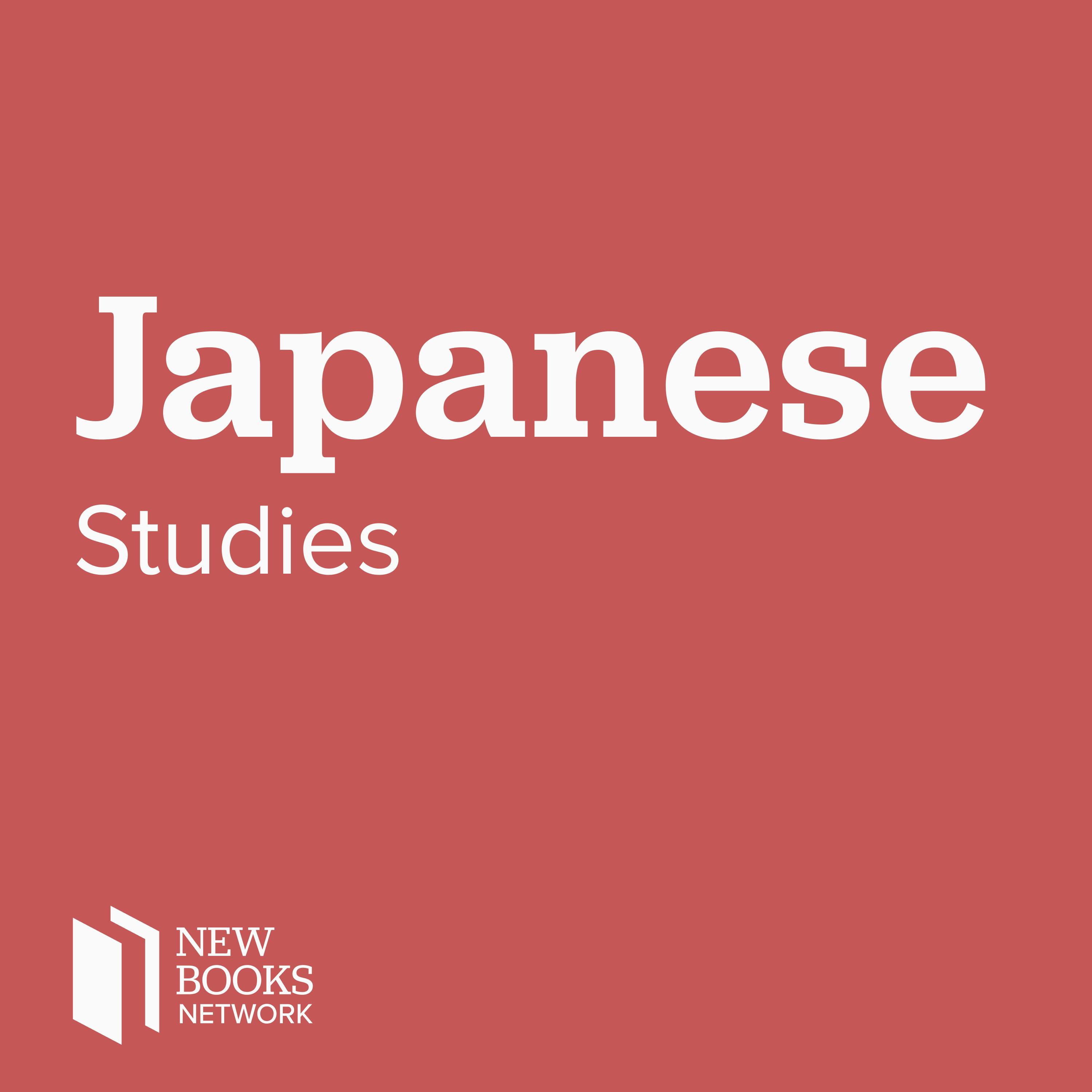
New Books in Japanese StudiesMartin Dusinberre, "Mooring the Global Archive: A Japanese Ship and Its Migrant Histories" (Cambridge UP, 2023)In Mooring the Global Archive: A Japanese Ship and Its Migrant Histories (Cambridge UP, 2023), Martin Dusinberre follows the Yamashiro-maru steamship across Asian and Pacific waters in an innovative history of Japan's engagement with the outside world in the late-nineteenth century. His compelling in-depth analysis reconstructs the lives of some of the thousands of male and female migrants who left Japan for work in Hawai'i, Southeast Asia and Australia. These stories bring together transpacific historiographies of settler colonialism, labour history and resource extraction in new ways. Drawing on an unconventional and deeply material archive, from gravestones to government files, paintings to...
2024-05-191h 06
Exchanges: A Cambridge UP PodcastMartin Dusinberre, "Mooring the Global Archive: A Japanese Ship and Its Migrant Histories" (Cambridge UP, 2023)In Mooring the Global Archive: A Japanese Ship and Its Migrant Histories (Cambridge UP, 2023), Martin Dusinberre follows the Yamashiro-maru steamship across Asian and Pacific waters in an innovative history of Japan's engagement with the outside world in the late-nineteenth century. His compelling in-depth analysis reconstructs the lives of some of the thousands of male and female migrants who left Japan for work in Hawai'i, Southeast Asia and Australia. These stories bring together transpacific historiographies of settler colonialism, labour history and resource extraction in new ways. Drawing on an unconventional and deeply material archive, from gravestones to government files, paintings to...
2024-05-191h 06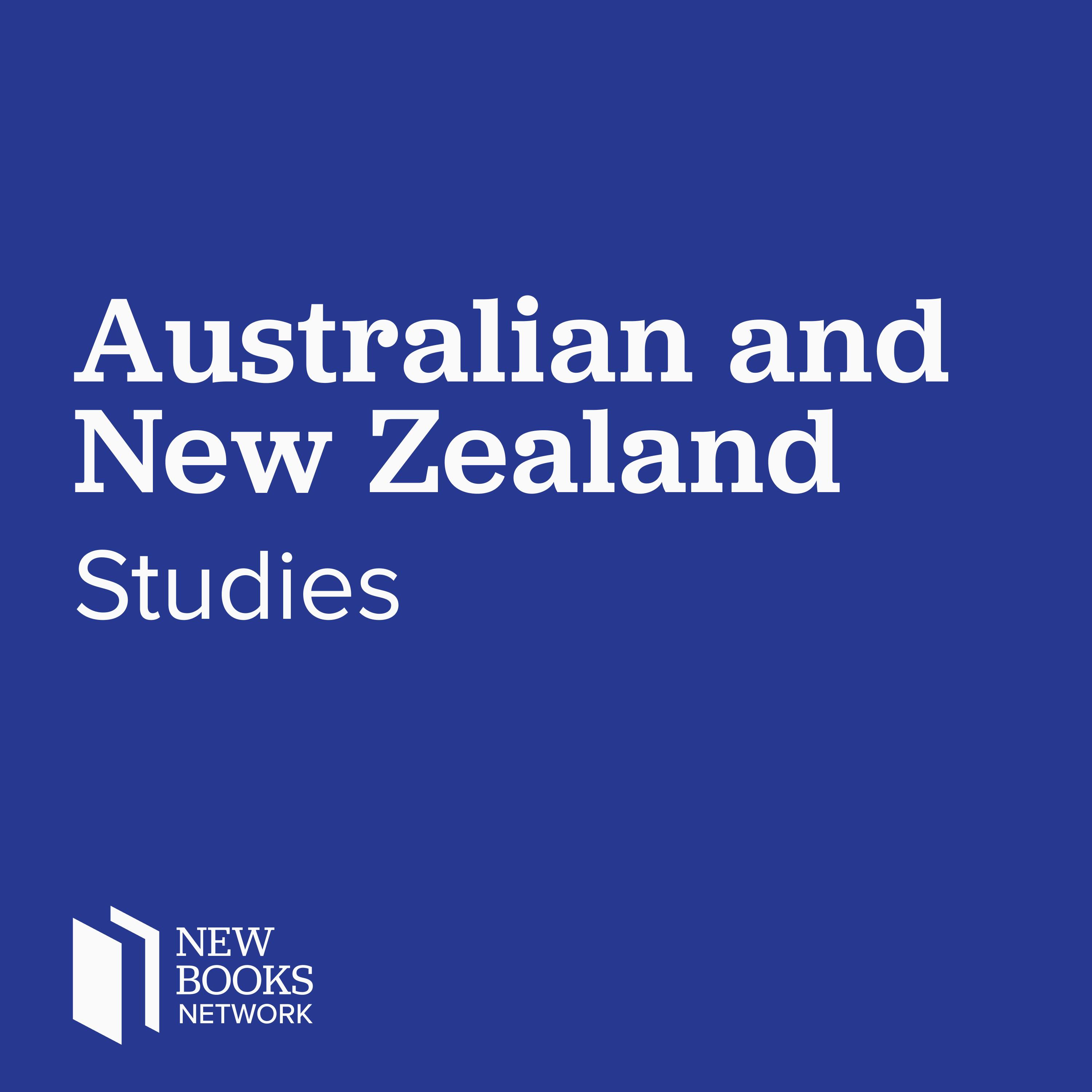
New Books in Australian and New Zealand StudiesMartin Dusinberre, "Mooring the Global Archive: A Japanese Ship and Its Migrant Histories" (Cambridge UP, 2023)In Mooring the Global Archive: A Japanese Ship and Its Migrant Histories (Cambridge UP, 2023), Martin Dusinberre follows the Yamashiro-maru steamship across Asian and Pacific waters in an innovative history of Japan's engagement with the outside world in the late-nineteenth century. His compelling in-depth analysis reconstructs the lives of some of the thousands of male and female migrants who left Japan for work in Hawai'i, Southeast Asia and Australia. These stories bring together transpacific historiographies of settler colonialism, labour history and resource extraction in new ways. Drawing on an unconventional and deeply material archive, from gravestones to government files, paintings to...
2024-05-191h 06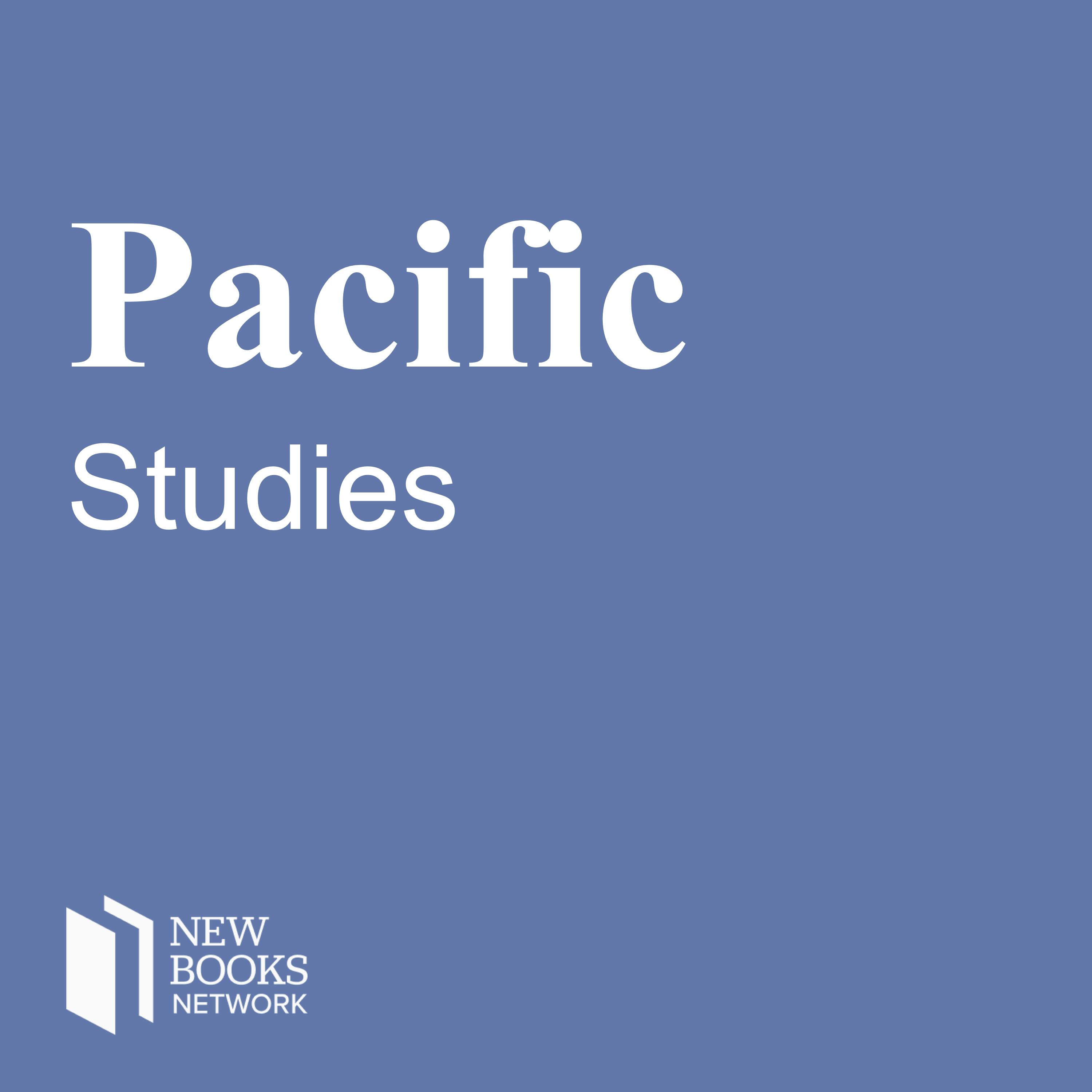
New Books in Pacific StudiesMartin Dusinberre, "Mooring the Global Archive: A Japanese Ship and Its Migrant Histories" (Cambridge UP, 2023)In Mooring the Global Archive: A Japanese Ship and Its Migrant Histories (Cambridge UP, 2023), Martin Dusinberre follows the Yamashiro-maru steamship across Asian and Pacific waters in an innovative history of Japan's engagement with the outside world in the late-nineteenth century. His compelling in-depth analysis reconstructs the lives of some of the thousands of male and female migrants who left Japan for work in Hawai'i, Southeast Asia and Australia. These stories bring together transpacific historiographies of settler colonialism, labour history and resource extraction in new ways. Drawing on an unconventional and deeply material archive, from gravestones to government files, paintings to...
2024-05-191h 06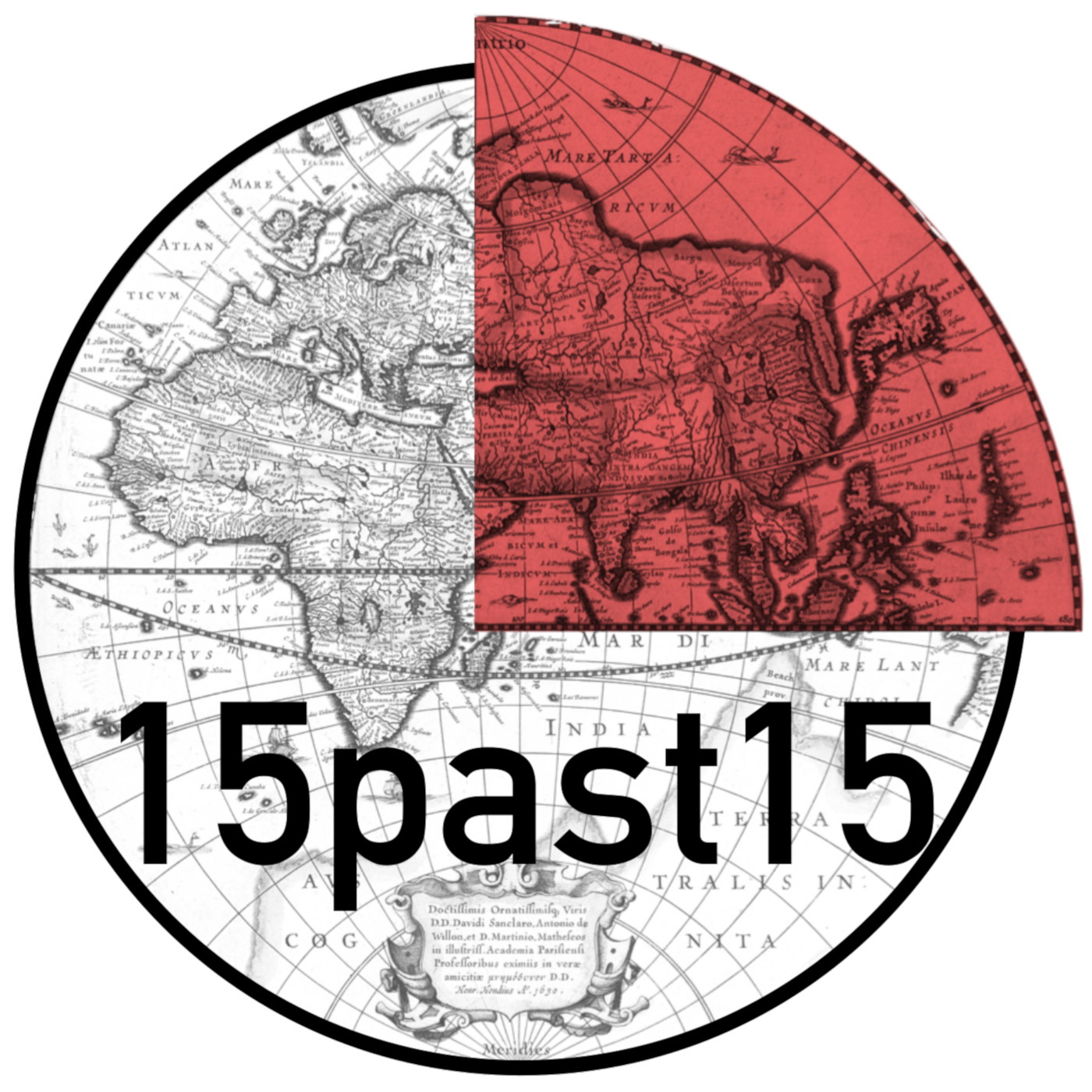
15past15 podcast seriesComputer, Tiere und MenschenS03E07 Welche Geschichten des Historischen Seminars sind noch zu erzählen? Viele! Jose Cáceres Mardones und Maryam Joseph stellen kurz einige der Geschichten vor, die sie in den Folgen nicht erzählen konnten.
2022-03-2112 min
15past15 podcast seriesComputer, Tiere und MenschenS03E07 Welche Geschichten des Historischen Seminars sind noch zu erzählen? Viele! Jose Cáceres Mardones und Maryam Joseph stellen kurz einige der Geschichten vor, die sie in den Folgen nicht erzählen konnten.
2022-03-2112 min
15past15 podcast seriesBologna oder BologneseS03E06 Es gab einmal das Lizentiat. Von oben nach unten wurde aber ein neues System vorangetrieben: Bologna. Die Reform wandelte sich mehrmals um. Es änderte Strukturen und Denkweisen - brachte aber auch neues Leben am Historischen Seminar. Mit den Gästen Heinrich Christ, Christian Marek, Carlo Moos, Monika Dommann, Francesco Falone und Barbara Holler.
2022-03-2114 min
15past15 podcast seriesBologna oder BologneseS03E06 Es gab einmal das Lizentiat. Von oben nach unten wurde aber ein neues System vorangetrieben: Bologna. Die Reform wandelte sich mehrmals um. Es änderte Strukturen und Denkweisen - brachte aber auch neues Leben am Historischen Seminar. Mit den Gästen Heinrich Christ, Christian Marek, Carlo Moos, Monika Dommann, Francesco Falone und Barbara Holler.
2022-03-2114 min
15past15 podcast seriesVäterliche FreundschaftenS03E05 Das Historische Seminar ist Erbe des Historismus. Leopold von Ranke war der Lehrer des Gründers vom Historischen Seminar: Max Büdinger. Somit wurde nicht nur die Wissenschaftlichkeit der neuen Disziplin gelehrt, sondern eben auch deren Vermännlichung fortgesetzt. Mit Gast Falko Schnicke.
2022-03-2116 min
15past15 podcast seriesVäterliche FreundschaftenS03E05 Das Historische Seminar ist Erbe des Historismus. Leopold von Ranke war der Lehrer des Gründers vom Historischen Seminar: Max Büdinger. Somit wurde nicht nur die Wissenschaftlichkeit der neuen Disziplin gelehrt, sondern eben auch deren Vermännlichung fortgesetzt. Mit Gast Falko Schnicke.
2022-03-2116 min
15past15 podcast seriesBlockade gegen FrauenS03E04 Erst 2003 wurden die ersten Professorinnen ans Historische Seminar berufen. Der Kampf für Gleichberechtigung wurde auf allen Ebenen geführt: Studentinnen, Dozentinnen und nun Professorinnen setzten sich kontinuierlich dafür ein. Mit Gästen Margrit Steinhauser, Hans-Jürg Fehr und Monika Dommann.
2022-03-2115 min
15past15 podcast seriesBlockade gegen FrauenS03E04 Erst 2003 wurden die ersten Professorinnen ans Historische Seminar berufen. Der Kampf für Gleichberechtigung wurde auf allen Ebenen geführt: Studentinnen, Dozentinnen und nun Professorinnen setzten sich kontinuierlich dafür ein. Mit Gästen Margrit Steinhauser, Hans-Jürg Fehr, Monika Dommann und Falko Schnicke.
2022-03-2115 min
15past15 podcast seriesWir und die dritte WeltS03E03 Globalgeschichte ist heutzutage in aller Munde. Dafür mussten die Studierende aber auch kämpfen. Die Rolle der “Dritten Welt” am Historischen Seminar wurde vor allem im Hinblick auf eine neue Berufung in den 80er-Jahren kräftig diskutiert. Mit Gästen Martin Dusinberre, Heinrich Christ, Margrit Steinhauser.
2022-03-2114 min
15past15 podcast seriesWir und die dritte WeltS03E03 Globalgeschichte ist heutzutage in aller Munde. Dafür mussten die Studierende aber auch kämpfen. Die Rolle der “Dritten Welt” am Historischen Seminar wurde vor allem im Hinblick auf eine neue Berufung in den 80er-Jahren kräftig diskutiert. Mit Gästen Martin Dusinberre, Heinrich Christ, Margrit Steinhauser.
2022-03-2114 min
15past15 podcast seriesStudierende für MitbestimmungS03E02 Unmittelbar nach den 68er-Protesten gab es eine andere Art Revolution am Historischen Seminar: Die Studierende durften in der Seminarkonferenz beisitzen - nur eine der Debatten zwischen Studierenden und Professoren. Mit Gästen Hans-Jürg Fehr, Jakob Tanner, Margrit Steinhauser und Carsten Goehrke.
2022-03-2115 min
15past15 podcast seriesStudierende für MitbestimmungS03E02 Unmittelbar nach den 68er-Protesten gab es eine andere Art Revolution am Historischen Seminar: Die Studierenden durften nach einem langen Kampf endlich in der Seminarkonferenz beisitzen - nur eine der Debatten zwischen Studierenden und Professoren. Mit Gästen Hans-Jürg Fehr, Jakob Tanner, Margrit Steinhauser und Carsten Goehrke.
2022-03-2115 min
15past15 podcast seriesDas Seminar. Archivgeschichten S03E01 Welche Geschichten über das Historische Seminar befinden sich in den Archiven? Viele! Mitbestimmung, Globalgeschichte, Gleichberechtigung, Historismus und Bologna sind nur einige zu erwähnen. Maryam Joseph und Jose Cáceres Mardones stellen die neue Staffel vor.
2022-03-2113 min
15past15 podcast seriesDas Seminar. ArchivgeschichtenS03E01 Welche Geschichten über das Historische Seminar befinden sich in den Archiven? Viele! Mitbestimmung, Globalgeschichte, Gleichberechtigung, Historismus und Bologna sind nur einige davon. Maryam Joseph und Jose Cáceres Mardones stellen die neue Staffel vor.
2022-03-2113 min
15past15 podcast seriesArms, Art and Assets in Zurich (Matthieu Leimgruber)S02E15 Matthieu Leimgruber discusses his public report (released in November 2020) on the controversial career of Zurich arms manufacturer and art collector Emil Bührle (1890-1956). Interviewed by Martin Dusinberre.
2020-12-2422 min
15past15 podcast seriesDon't Leave the Past to the Economists (Mary O'Sullivan)S02E14 Mary O’Sullivan examines the contestations that go into ‘learning from the
past’—in particular, from the Great Depression—and highlights the need for economists
and historians to deconstruct the notion of ‘lessons’ from that past. Interviewed by Martin
Dusinberre and Simon Teuscher; produced by Dario Willi.
2020-05-0817 min
15past15 podcast seriesTo Save or Not To Save (Sheldon Garon)S02E13 Sheldon Garon discusses how the habit of saving had to be learned in late-nineteenth
century Japan as elsewhere in the world, thus debunking a wider narrative of Asian ‘culture’
being central to an individual’s relationship to money. Interviewed by Martin Dusinberre; produced
by Dario Willi.
2020-05-0825 min
15past15 podcast seriesWealth in the Sharia Courts (Beshara Doumani)S02E12 Beshara Doumani explains what strategies had to be considered in planning for property
devolution after death through the waqf in seventeenth- to nineteenth-century Ottoman Syria—and
the wider significance of this story for understanding the role of the family in Middle Eastern history.
Interviewed by Birgit Tremml-Werner and Martin Dusinberre; produced by Dario Willi.
2020-05-0819 min
15past15 podcast seriesThinking with Medieval Markets (Joel Kaye)S02E11 Joel Kaye shows how medieval scholars engaged with the so-called ‘commercial
revolution’ of Europe’s late Middle Ages in order to conceptualize the ‘market’
in new ways and thereby develop a new model of equilibrium in economics, politics and science.
Interviewed by Martin Dusinberre and Birgit Tremml-Werner; produced by Dario Willi.
2020-05-0826 min
15past15 podcast seriesA Tale of Tuna (Nadin Hée)S02E10 Nadin Hée takes the example of tuna fishing as a departure point both for
considering Japan’s engagement with transpacific markets and also as a way for understanding the
significance of the ‘pelagic’ empire for the wider history of resource extraction.
Interviewed by Birgit Tremml-Werner and Martin Dusinberre; produced by Dario Willi.
2020-05-0518 min
15past15 podcast seriesBrazil's Black Gold (Antoine Acker)S02E09 Antoine Acker examines the transformation of Brazilian society, and of debates about
national wealth and Brazil’s place in the industrialized world, following the discovery of oil in
the 1930s. Interviewed by Martin Dusinberre and Birgit Tremml-Werner; produced by Dario Willi.
2020-05-0519 min
15past15 podcast seriesTrickle-down Health (Iris Borowy)S02E08 Iris Borowy presciently argues that health is the key prerequisite for global wealth
creation—although, paradoxically, historical data show that during periods of economic expansion,
people’s health tends to suffer. Interviewed by Martin Dusinberre and Birgit Tremml-Werner;
produced by Dario Willi.
2020-05-0422 min
15past15 podcast seriesInvesting in New Amsterdam (Eva Brugger)S02E07 Eva Brugger reconstructs the importance of the beaver fur trade to the
seventeenth-century Dutch colony of New Amsterdam as a case study for how early modern empires projected
a vision of future wealth for potential settlers and investors. Interviewed by Birgit Tremml-Werner and
Martin Dusinberre; produced by Dario Willi.
2020-05-0418 min
15past15 podcast seriesHow 'Luxury' Changed across Time (Giorgio Riello)S02E06 Giorgio Riello examines how the early modern cotton industry offers an entry point into
debates over the ‘great divergence’ in wealth between Europe and Asia, including the need
for scholars to rethink meanings of ‘luxury’ in global history. Interviewed by Birgit
Tremml-Werner and Martin Dusinberre; produced by Dario Willi.
2020-05-0321 min
15past15 podcast seriesWhy Spain was not an Extractive Empire (Regina Grafe)S02E05 Regina Grafe argues that historians fundamentally misunderstand the early modern Spanish
empire when they suggest that it was characterised by the extraction and transfer of silver from Latin
America to the European metropole. Interviewed by Birgit Tremml-Werner and Martin Dusinberre; produced
by Dario Willi.
2020-05-0220 min
15past15 podcast seriesWealth and the Anthropocene (Jeremy Davies)S02E04 Jeremy Davies explains why an understanding of the Anthropocene should be central to an
understanding of wealth inequalities in history—and why alternative terms, such as the
Capitalocene, do not advance the debate. Interviewed by Martin Dusinberre and Birgit Tremml-Werner;
produced by Dario Willi.
2020-05-0119 min
15past15 podcast seriesDealing with Global Inequality (Corinna Unger)S02E03 Corinna Unger offers a history of development over the twentieth century, considering
the ways in which development assistance tries to address problems that emerged from colonialism and
from wealth inequalities more generally. Interviewed by Martin Dusinberre and Birgit Tremml-Werner;
produced by Dario Willi.
2020-04-3021 min
15past15 podcast seriesWhy Wealth? (Simon Teuscher)S02E02 Simon Teuscher explores the thematic relevance of ‘wealth’ as a topic of
study for historians, focusing in particular on some of the surprising continuities between wealth
management in the medieval and modern worlds. Interviewed by Birgit Tremml-Werner and Martin Dusinberre;
produced by Dario Willi.
2020-04-3021 min
15past15 podcast seriesDiscussing Wealth in the Corona EraS02E01 Martin Dusinberre offers an overview of season 2 of 15past15, a season which was planned
and recorded in very different circumstances to those of the global Covid-19 crisis. What might the
theme of wealth and the writing of history bring to our current understandings of a transformed world?
2020-04-2905 min
15past15 podcast seriesExhibiting Chinese and Japanese Key MomentsS01E15 Bettina Zorn explains how objects of entangled histories illustrate Chinese and Japanese
pasts in the East Asia collection of the Weltmuseum Wien. Interviewed by Birgit Tremml-Werner.
2019-04-1616 min
15past15 podcast seriesJapan and the Pacific AgeS01E14 Martin Dusinberre examines both the importance of the Pacific Ocean in modern Japanese
history and the challenges that come from trying to write the "Pacific Age". Interviewed by
Joachim Kurtz and Birgit Tremml Werner.
2019-04-0915 min
15past15 podcast seriesChina's RenaissanceS01E13 Barbara Mittler introduces the Chinese scholar Hu Shi's conception of a Chinese
renaissance in the early twentieth century and its implications for the writing of global history.
Interviewed by Joachim Kurtz and Birgit Tremml Werner.
2019-04-0215 min
15past15 podcast seriesWhose Renaissance?S01E12 Pablo Blitstein discusses the methodological challenges that arise from studying
"the Renaissance" in world history. Interviewed by Birgit Tremml Werner and Martin Dusinberre.
2019-03-2615 min
15past15 podcast seriesChinese UtopiasS01E11 Lorenzo Andolfatto shows how societal transformations in late-nineteenth century China
were reflected in the utopian popular literature. Interviewed by Martin Dusinberre and Birgit Tremml
Werner.
2019-03-1914 min
15past15 podcast seriesThe Woman Question in late-Quing ChinaS01E10 Joan Judge traces the shifting repertoire of exemplary models for women as Qing China
struggled with national reform and historical time on the eve of the 1911 Revolution. Interviewed by
Martin Dusinberre.
2019-03-1217 min
15past15 podcast seriesPersuasion with China's PastS01E09 Jonathan Chappell explains how the historical reference points for Qing empire officials
changed across the nineteenth century, especially with regard to the management of China's borderlands.
Interviewed by Martin Dusinberre.
2019-03-0516 min
15past15 podcast seriesMisreading the Macartney MissionS01E08 Henrietta Harrison examines how Lord Macartney's mission to Qing China in 1793 has been
archivally framed in the West and in China, leading to the idea that Chinese international relations
particularly prioritised ritual and tribute.
2019-02-2616 min
15past15 podcast seriesThe Columbus of JapanS01E07 Birgit Tremml Werner introduces Yamada Nagamasa (1590-1630), whom some scholars called
the "Columbus of Japan" in the 1940s-a label, she argues, which tells us as much about
twentieth-century as seventeenth-century history. Interviewed by Joachim Kurtz and Martin Dusinberre.
2019-02-1916 min
15past15 podcast seriesProfessionalising Japan's PastS01E06 Lisa Yoshikawa illustrates how academic historians in modern Japan used the
professionalisation of studying and writing about the past to establish politically opportune narratives
for a modern imperial state. Interviewed by Birgit Tremml Werner and Martin Dusinberre.
2019-02-1215 min
15past15 podcast seriesChina in Japan's Modern TimeS01E05 Stefan Tanaka suggests that Japanese intellectuals "discovered" Japan's past
in the mid-nineteenth century, both by reconsidering China's place in the world and by thinking about
time in new ways. Interviewed by Martin Dusinberre and Birgit Tremml Werner.
2019-02-0516 min
15past15 podcast seriesTranslating the Republic of LettersS01E04 David Mervart traces the entanglements of foreign trade and book collecting in so-called
"closed Japan", and the ways that Japanese translators came to conceive of-and embody-the
republic of letters. Interview: Martin Dusinberre and Birgit Tremml Werner
2019-01-2916 min
15past15 podcast seriesWhen did Taiwan Begin?S01E03 Leigh Jenco considers what debates about the history of Taiwan in seventeenth-century
China bring to our theoretical understanding of imperialism. Interviewed by Martin Dusinberre and Birgit
Tremml Werner.
2019-01-2217 min
15past15 podcast seriesConfucius's ComebackS01E02 Joachim Kurtz discusses the changing ways in which Confucius has been understood in the
last five hundred years—from “philosopher” to “Chinese” sage whose
teachings are incompatible with Western modernity. Interviewed by Martin Dusinberre.
2019-01-1516 min
15past15 podcast seriesIntroducing 15past15S01E01 15past15 is a new podcast which discusses how the past is made, and by whom. Its first
season focuses on history and history-writing in East Asia, from the sixteenth century to today.
Interviewees debate Confucius’s comeback, the Chinese Renaissance, the Eurasian Republic of
Letters, the Columbus of Japan, the methodologies and writing of global history, and much more—all
in a fifteen-minute format (more or less). Interviews will be released weekly.
2019-01-1405 min